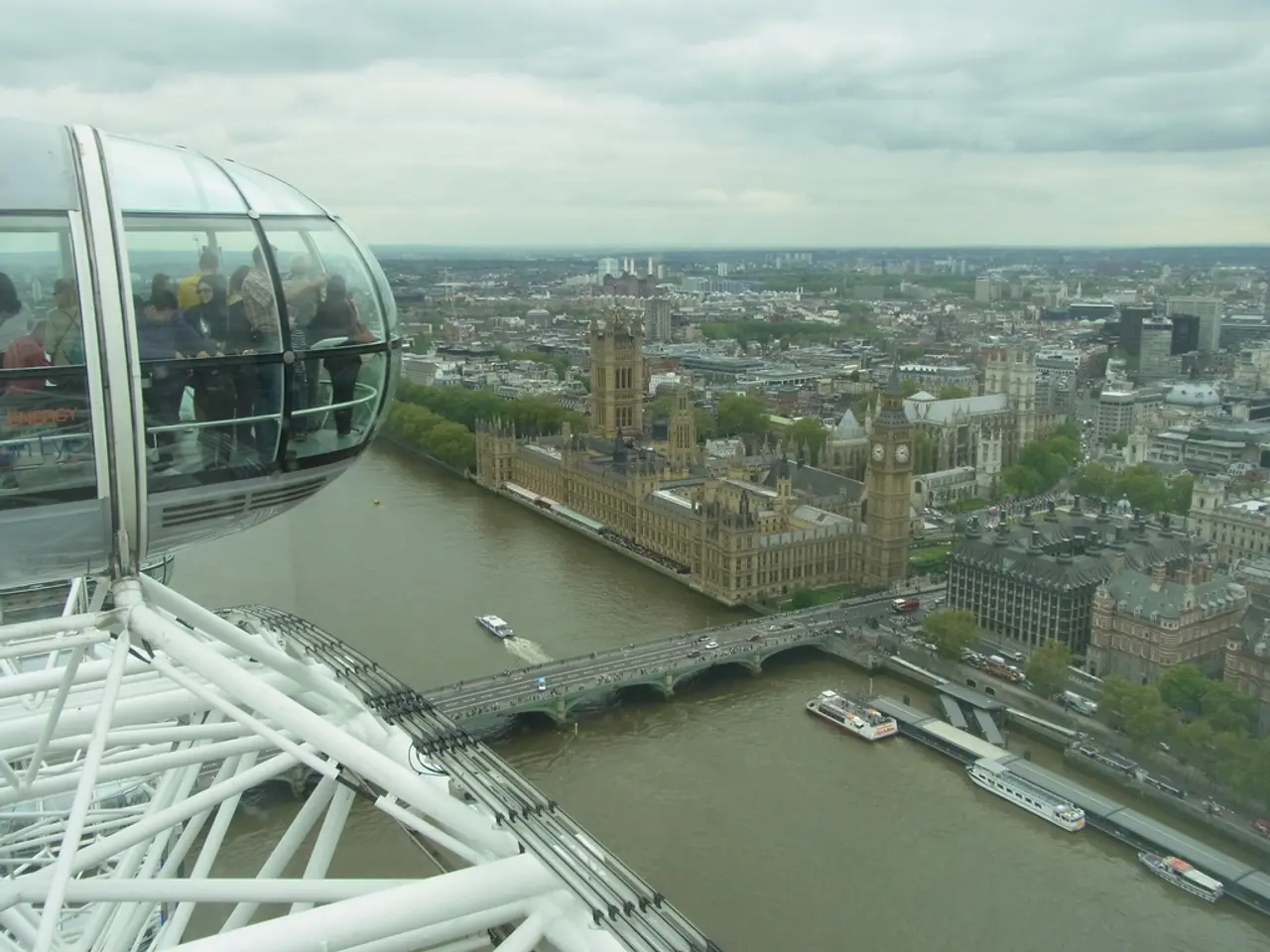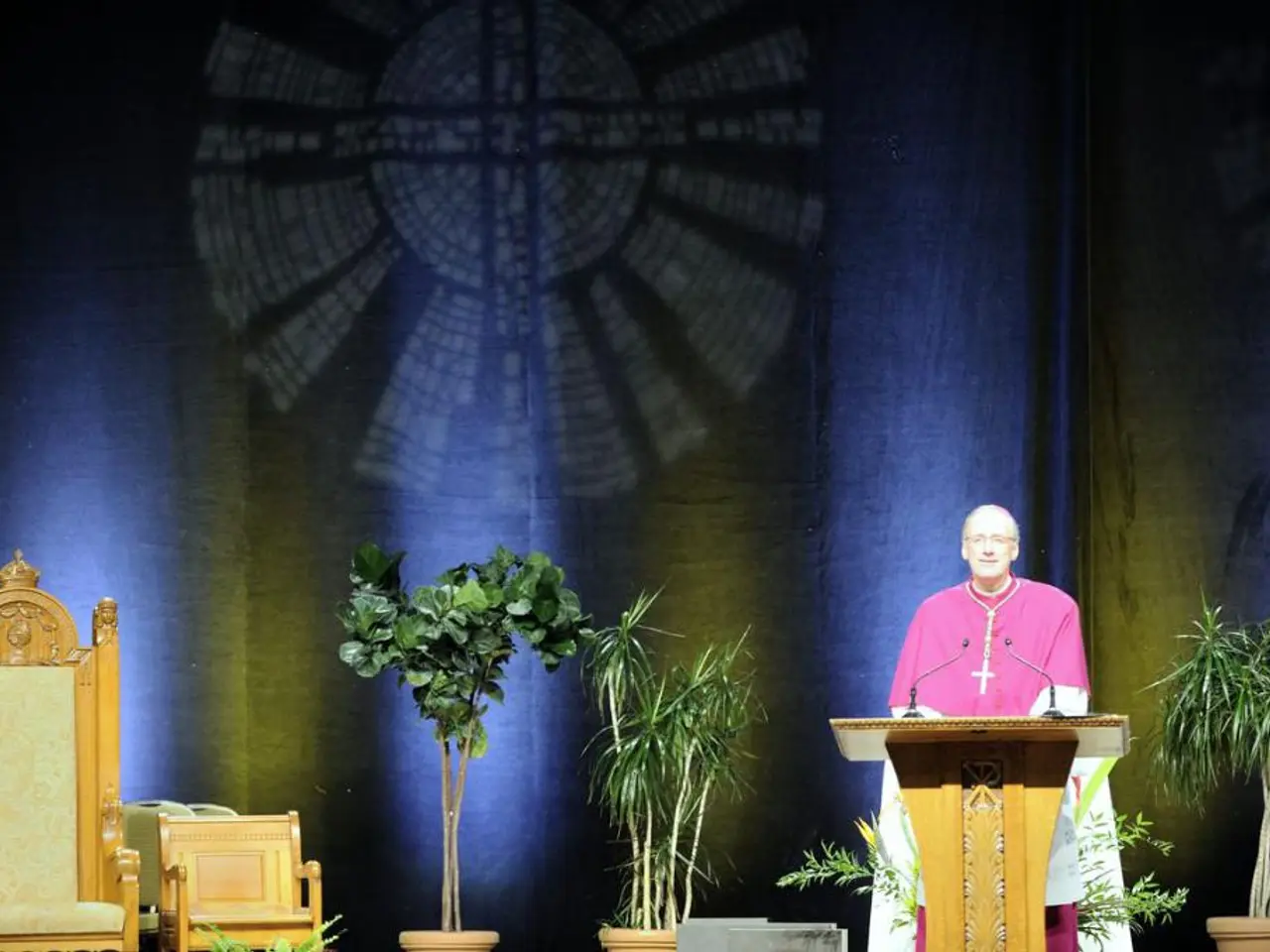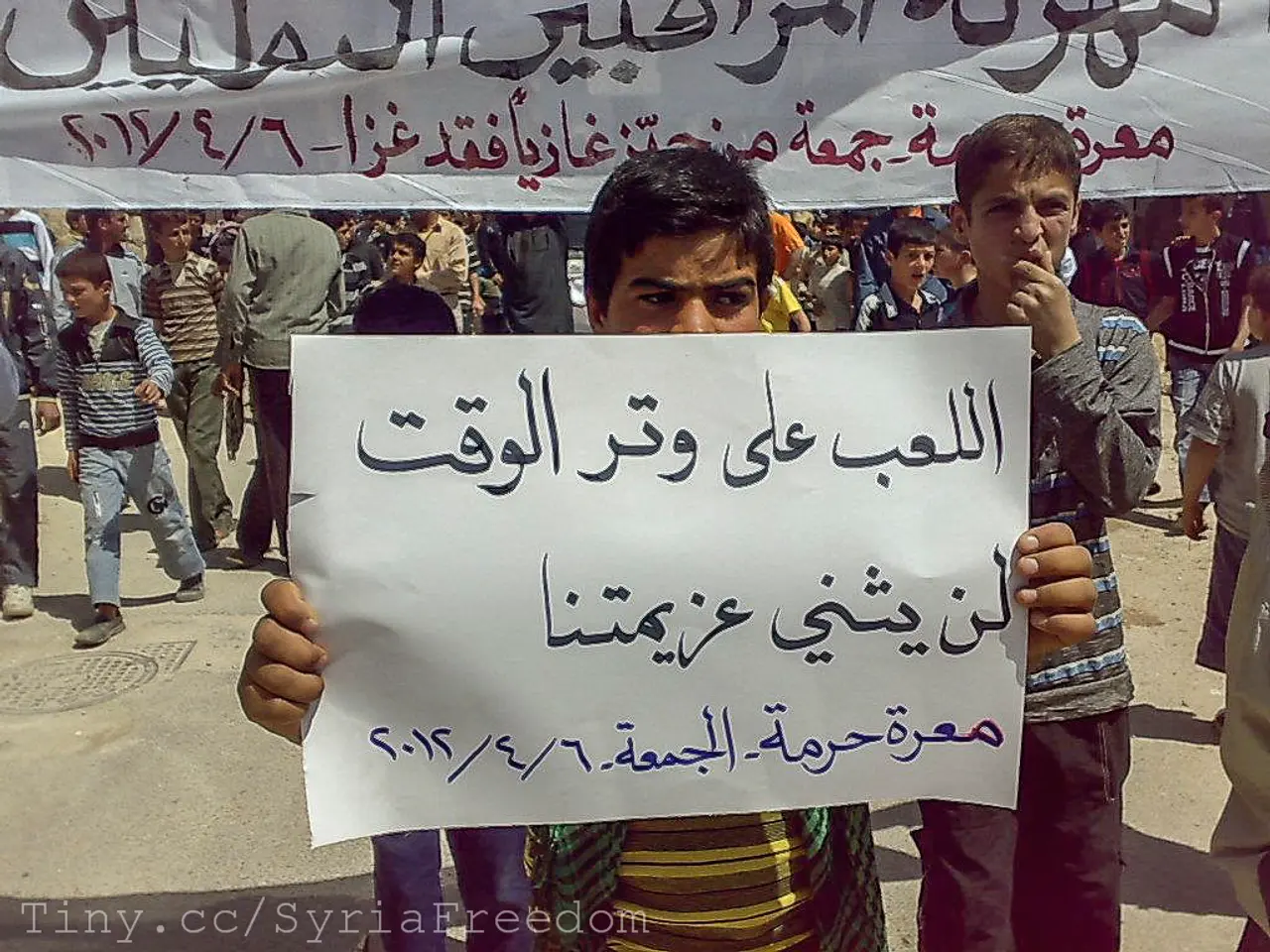Statements from Labour MPs regarding Starmer's promise to acknowledge Palestine as a state
The United Kingdom has announced its intention to formally recognise the state of Palestine in September, joining a growing number of countries worldwide that have already endorsed Palestinian statehood. This decision, if followed through, could mark a significant shift in global diplomacy, particularly in the context of the long-standing Israeli-Palestinian conflict.
The UK's announcement comes amidst increasing diplomatic momentum for broader recognition of Palestine. Spain and France have already recognised Palestine, with France set to follow through in September, making it the first G7 country to do so. If the UK proceeds with its plans, four of the five permanent members of the United Nations Security Council will recognise Palestine.
Shehab Khan, an award-winning presenter and political correspondent for ITV News, has highlighted that this potential shift by the UK and France represents a notable development. These Western countries, traditionally more cautious in their approach, could pave the way for more states to follow suit, altering the diplomatic landscape surrounding the Israeli-Palestinian conflict.
However, it is important to note that the US, Israel's staunchest ally, remains opposed to the recognition of Palestine. The US has not provided new facts about its position regarding the recognition of Palestine or any other countries.
The recognition of Palestine is not solely a symbolic gesture. It grants Palestine access to international legal institutions and diplomatic platforms. However, there are concerns that recognition without effective action to support Palestinian sovereignty and development, particularly in Gaza and the West Bank, may amount to "gesture politics" without meaningful change on the ground.
The UK's decision has not been without controversy. The announcement has split the Labour party, with some MPs viewing it as a diplomatic lever and others expressing concern about its principles and potential effects on negotiations for the release of hostages. More than 250 MPs have signed a cross-party letter urging the UK government to recognise Palestinian statehood.
In the midst of this, the death toll in Gaza, following 21 months of war, is feared to exceed 60,000. The real effect on diplomacy and the conflict depends on subsequent practical support alongside recognition.
Recognition of Palestine by the UK, if it occurs, may be largely symbolic in the short term but can have significant long-term implications. As the UK and other countries consider their stance, the world watches with bated breath, hoping for a resolution that brings peace and sovereignty to the people of Palestine.
[1] Khan, S. (2025). UK to Recognise Palestine: A New Era in Global Diplomacy? ITV News. [3] BBC News. (2025). UK to Recognise Palestine: What Does It Mean? BBC News Online.
- The UK's decision to potentially recognize Palestine, along with France's planned recognition, could embolden other Western nations to follow suit, influencing the global political landscape in the Israeli-Palestinian conflict. (Shehab Khan's analysis, ITV News)
- The recognition of Palestine by the UK, in conjunction with subsequent practical support, could have far-reaching implications, potentially bringing peace and sovereignty to the people of Palestine. (BBC News article)








